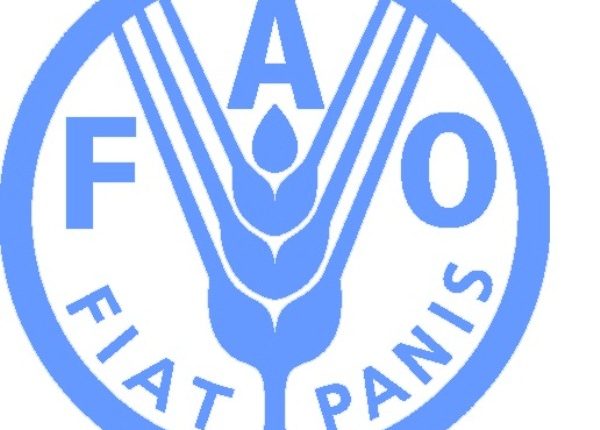The Food and Agriculture Organization of the United Nations (FAO) in collaboration with the Government of Zimbabwe launched a technical cooperation programme to enhance national capacity to support meaningful youth engagement in agrifood systems through policy support, leadership development and institutional strengthening.
FAO provides technical support to the Government of Zimbabwe to ensure that youth are meaningfully integrated into agrifood systems as key actors in productivity, innovation, and food security. This project builds upon the experiences of the FAO in Zimbabwe including the Green Jobs for Rural Youth Employment. It represents a crucial step in addressing the youth-related knowledge and skills and policy gaps identified in previous initiatives.
FAO highlights the urgency of creating 10–12 million new jobs annually in Africa and positions agrifood systems especially given their rapid growth and high potential for value addition as key to unlocking youth employment. Drawing on FAO Investment Guidelines for Youth in Agrifood Systems, the approach emphasizes integrating youth perspectives throughout the project cycle. The approach encourages recognizing youth as a diverse group with varied needs, capacities, and aspirations, and calls for collaboration among public, private, and civil society actors to create enabling environments.
“This project is set to inform and shape future priorities for collaboration between the Government of Zimbabwe and FAO on youth-related matters. By fostering this collaboration, the project aims to create an enabling environment that supports more effective interventions for youth engagement in agrifood systems, ultimately empowering young people to take a leading role in transforming these systems for the better,” said Patrice Talla, FAO Subregional Coordinator for Southern Africa and Representative to Zimbabwe.
This milestone comes at an opportune time when the country is starting to operationalize the second phase of the Agriculture and Food Systems and Rural Transformation Strategy (AFSRTS 2.0) with a particular focus on mainstreaming and integrating youth in agrifood systems.
“Mainstreaming youth is not an optional add-on; it is the fundamental strategy for achieving resilient, productive, and transformed agrifood systems and rural communities. The Government of Zimbabwe will provide visionary leadership, enact enabling policies, prioritize budget allocation for youth mainstreaming initiatives within Strategy 2.0, and ensure coordination across ministries,” said Mr. Jairos Mandizadza, Director – Gender Mainstreaming, Inclusivity and Wellness in the Ministry of Lands, Agriculture, Fisheries, Water and Rural Development in his keynote address.
As part of its commitment to enhancing youth participation in Zimbabwe’s agrifood systems, the FAO-led project will initiate a consultative and participatory process to support the development of a comprehensive national strategy that integrate youth issues. The approach is designed to engage a wide spectrum of stakeholders, from primary producers to tertiary institutions and development partners while ensuring that the strategy is grounded in local realities and informed by diverse perspectives.
As the project gains momentum, young people across Zimbabwe are expressing optimism and a renewed sense of purpose.
“With this project we are energised, motivated, by being heard, valued, seen and more importantly included, we are no longer participants but change makers and this proves that there is nothing for us which can be done without us,” said Getrude Chambati, Secretary for the World Food Forum Zimbabwe Chapter.
The process of project implementation will include a combination of face-to-face stakeholder consultations, strategic planning meetings, and a desk review of existing work by other partners in the sector. This blended methodology will ensure that the strategy builds on past efforts while introducing fresh, youth-centred insights. The project ultimately aims to support Zimbabwe in formulating a National Youth Investment Plan and a Youth-inclusive Agrifood Systems Strategy, laying the groundwork for sustainable and inclusive agricultural transformation.
The inception meeting provided the platform to key stakeholders, including youths to review and provide input on how the draft AFSRTS 2 can integrate more youths issues. This was achieved through breakout sessions where participants were put into groups to review and update pillars of the AFSRTS 2. During the launch key stakeholders had the opportunity to appreciate the current youth in agrifood systems frameworks and policies at national, regional and international levels.
Going forward, the project is poised to play a transformative role in shaping Zimbabwe’s agrifood landscape by supporting the development of a robust national strategy and targeted investment plans for youth. By enhancing the capacity and skills of both young people and agriculture ministry personnel, FAO is committed to strengthening governance and leadership frameworks that support youth inclusion. This marks a pivotal step toward building a more resilient, inclusive, and future-ready agrifood system, driven by the energy, innovation, and potential of Zimbabwe’s youth.
Distributed by APO Group on behalf of Food and Agriculture Organization of the United Nations (FAO): Regional Office for Africa.


